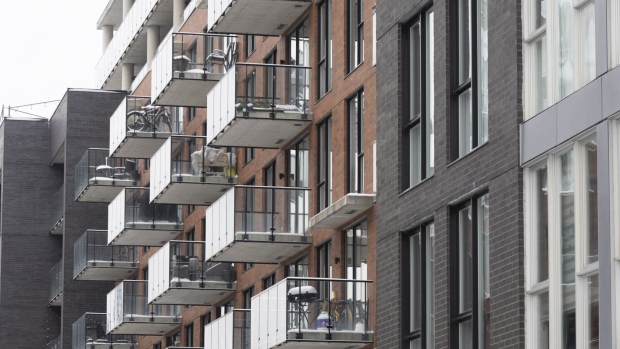Jan 31, 2024
Canada’s Apartment Rental Market Was Tightest on Record in 2023
, Bloomberg News

(Bloomberg) -- Canada’s affordable housing crisis worsened in 2023 as the vacancy rate for rental apartments dropped to an all-time low and rent increases climbed to a record high.
The national vacancy rate at apartment buildings fell to a new low of 1.5% by October of last year, less than half its level from just two years before, representing the tightest market since the Canada Mortgage & Housing Corp. began collecting data in 1988, according to a report released Wednesday. The average monthly rent for a two-bedroom unit surged a record 8%, to C$1,359 ($1,016), the report said.
Canada’s rental housing market has emerged as the epicenter of a national cost of living crisis, increasingly linked to immigration, which Prime Minister Justin Trudeau’s government is struggling to address as polling numbers sink.
Decades of underinvestment in affordable housing have been exacerbated by high levels of immigration in major cities. Although policymakers have taken steps to ease housing demand by capping the number of foreign students allowed into the country, and boosting supply by lowering taxes for new rental construction, the impact of both measures will take time to be felt.
The report showed a 1.7% increase in rental supply in 2023, not nearly enough to keep up with demand, including from 1.2 million new arrivals to Canada last year. The resulting growth in prices outpaced that of wages, increasing the financial burden on those renting.
That burden was particularly high for new tenants moving into “turnover units,” when rent control rules in place in some cities allow rates to catch up to market conditions. Nationally, rents in units being taken over by a new tenant were 13% higher than in non-turnover units, and 31% higher in Toronto, Canada’s largest city. Vancouver remains Canada’s most expensive rental market with the average price of a two-bedroom rental apartment C$2,181.
The number of rental units considered affordable to people with the lowest incomes is now statistically zero in Vancouver, Ottawa, and Toronto, as the proportion of renters falling behind on their rent in that last city rose to nearly 20%, the report said.
(Updates with chart)
©2024 Bloomberg L.P.


